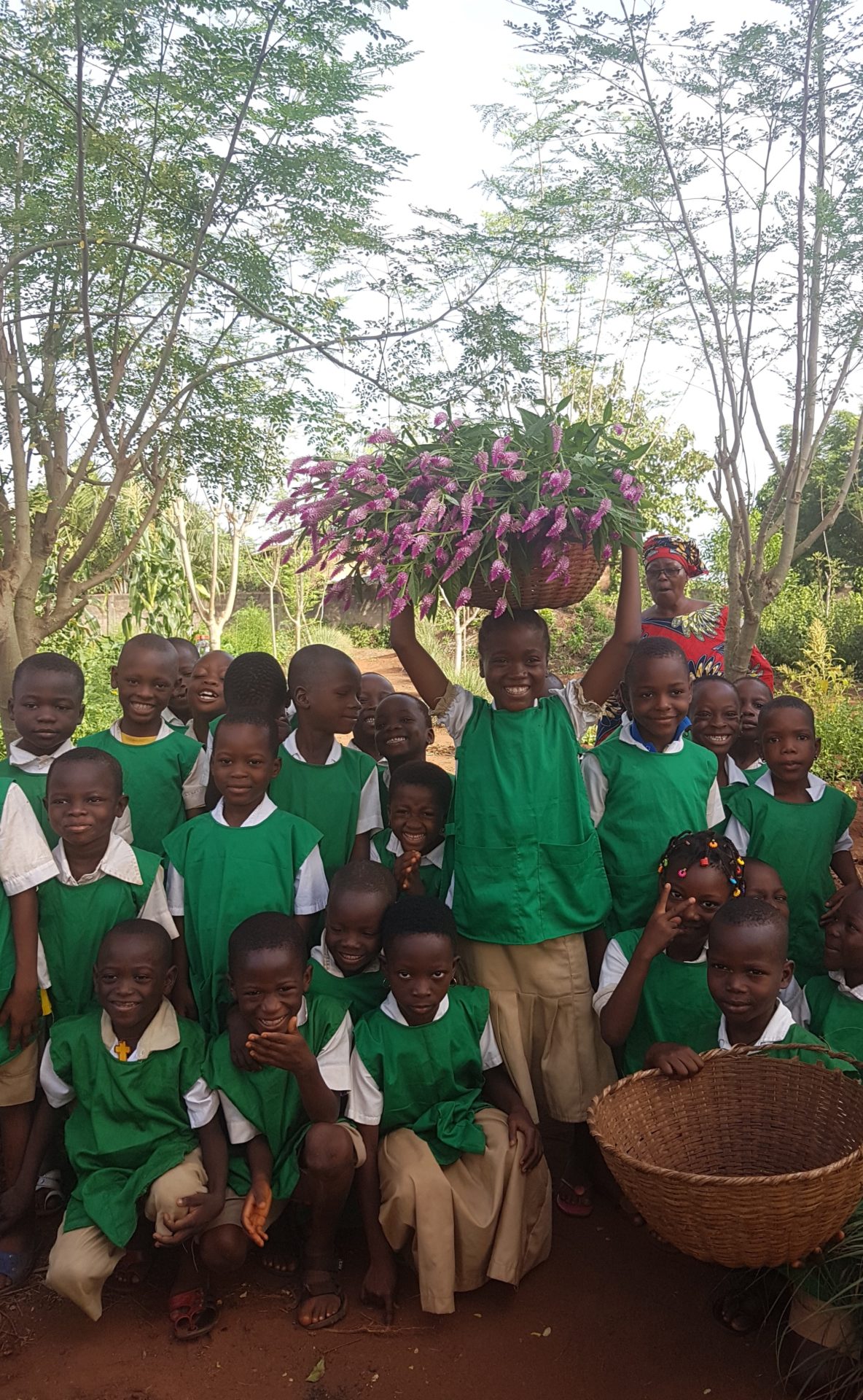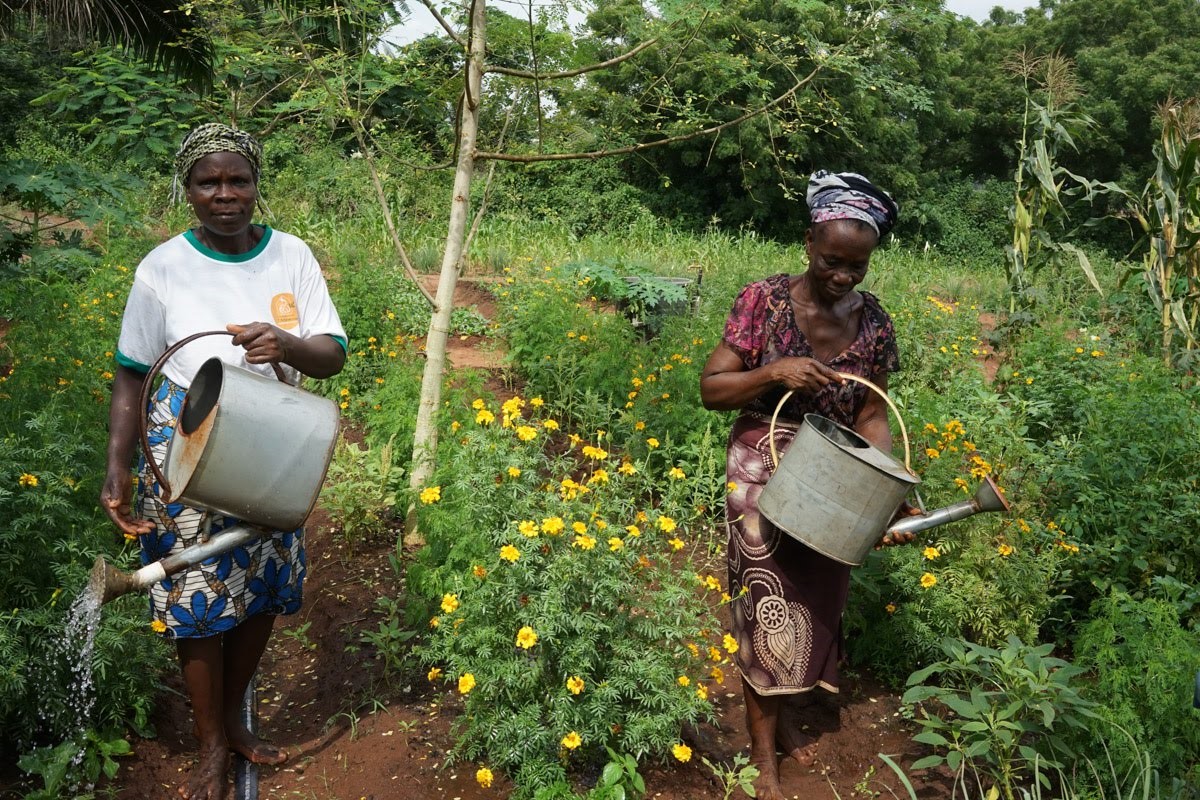
Laudato Si farm in Benin
« Laudato Si » farm in Benin
The Laudato Si farm in Benin is a project of the Emmanuel Community promoting the local agriculture and environmental development, by developing education in a primary school, and running an agro-ecological farm, following the principles of the Laudato Si encyclical, in a rural village of Bénin, Africa
CONTACT
the Emmanuel Community
WEBSITE
Emmanuel Community https://emmanuel.info/en/
Laudato Si farm https://fermelaprovidence-18.webself.net/
Fidesco International http://www.fidesco-international.org/
Maison de l’Artemisia (FR) https://maison-artemisia.org/
History
When Father Nestor, a priest from the Emmanuel Community, responsible of the St Andrew Parish in Banigbé (Benin) arrived in the village, he was struck by two realities : On one hand, kids in the village did not want to work and learn agricultural skills and would end up in poor suburbs of the big cities of the country. On another hand, the Laudato Si Encyclical was a way to live their faith very concretely in accordance with Nature and could allow them to live quite well in their village with a set of minimal skills.
He then decided to create a farm and a school, to allow children develop themselves in their entirety: heart, body and intelligence, to educate them in agroecology and to promote Artemisia (a plant preventing malaria). With the help of the Emmanuel Community to which he belongs, the initial idea has evolved in a structure that runs :
- an agro-ecological farm
- a « Laudato Si » primary school
- a school canteen
- the production and distribution of Artemisia, as prevention to malaria.
Mission
The farm was created in 2016 by Fidesco volunteers answering the call of Father Nestor. It develops medicinal agriculture, vegetable and food crops, agroforestry, animal husbandry and fish farming. Its objective is to make people discover all what the Creator provides to live a decent life. It employs 8 widows and 5 young people. It is currently run by a couple of Fidesco volunteers.
The school started in September 2017 and today includes 4 classes from kindergarden to middle of primary school. It is affiliated with diocesan education. Its pedagogy is rooted in reality so that pupils become men capable of reasoning and adapting to circumstances. Theoretical and practical courses in agriculture are given to children.
Each class cultivates its own piece of land within the farm. It currently employs 4 teachers, 2 assistants, a director and an assistant-director. 120 children attend school, some of them being very disadvantaged. They all come from the surroundings of the Saint Andrew parish of Banigbé. The school benefits from the know-how of Emmanuel Education, the branch of the Emmanuel Community focusing on developing and running catholic schools.
Since January 2019, a canteen has been opened so that children do not have to spend the whole day at school with an empty stomach. Breakfast is now served at 7:30 am and lunch at 12:30 pm. The canteen currently employs 2 school moms, helped by two young girls.
Since 2016, the cultivation and promotion of Artemisia effective against malaria, is an essential part of the project. Indeed, a sick kid cannot succeed at school!
To ensure the necessary quality standards, they are members of the « Maison de l’Artemisia », an association which is promoting the cultivation and use of Artemisia in the best possible conditions. They have also become the main training center for its culture in Benin. Each month they welcome several new trainees to teach them how to cultivate and transform this plant, to prevent malaria.
The farm supplies the school with Artemisia herbal tea and for the past 18 months no one case of malaria has been reported amongst the pupils.
The next phase of the project is to renovate the school buildings and construct seven new teaching classes. Additional land will be bought to support the increasing number of students and investments will be done in solar energy and water pumping for the school and the farm.
The project supported by The Caritas Pro Vitae Gradu Charitable Trust
Our donation will permit to implement the next phase of the project: to buy additional land, renovate the school buildings and construct seven new teaching classes.


